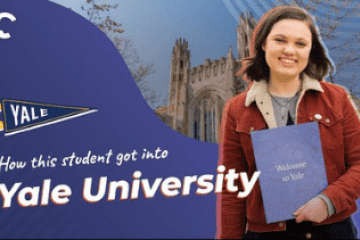If, like the University of Oxford, you trace your founding date back to 1096, you can get used to thinking that the way you do things has much to recommend it. Some years ago, when I was president of an American university, I was in conversation with the master of an Oxford college about a potential joint venture. To secure the blessing of his senior colleagues, he first needed to find a precedent. “If we have never done something like this before,” he said, “then we cannot do it now.”
US institutions of higher education are often considered nimbler, more agreeable to kicking up their heels than their peers in the UK, but actually that is not the case. Academic life on this side of the Atlantic also remains entrenched in a “we have always done it this way” mentality.
One of the few serious disruptors to the steady habits of the American academy is Michael Crow, the former executive vice-provost of Columbia University in New York and the president of Arizona State University since 2002. His new book with William Dabars, The Fifth Wave, is a sequel to their 2015 book about college life, Designing the New American University.
Crow has had a remarkable career, as innovator and pioneer, both celebrated and criticised with enthusiasm. He has taken ASU from an also-ran to one of the most interesting academic hotspots in the US. In this new volume, he makes the case for why others should follow his lead and reinvent themselves, throwing off the design constraints of history. Those who gaze too keenly into the rear-view mirror, he suggests, will miss what lies ahead – not to mention the opportunity to contribute fully to the future needs of society.
By calling for the liberation from old assumptions about how the machinery and governance of the university should proceed, Crow also invites us to refresh our thinking about teaching, research and learning. He urges universities to build a bigger tent: to open their doors more widely to those from all classes and walks of life; to wed scholarship for its own sake with practical research informed by the agora.
The Fifth Wave is most unlucky to have been released at the time of the coronavirus pandemic.
Aspects of it that might have seemed futuristic even two years ago now seem much less startling. Distance learning was resisted by most faculty and students of place-based schools prior to the government mandate to close campuses. Yet online pedagogy is now being applied on almost every campus, an overnight transformation. The introduction of such drastic changes to teaching methodology would previously have taken years of faculty consultation and committee work.
Yet in other ways the pandemic may make university leaders less open to Crow’s message.
There is currently much uncertainty about the digital divide, the future of campus-based learning and flows of international students. As a result, the plague has sucked much of the capacity for new adventures out of the air, not to mention money. Survival is the mode, not change. Some innovation will come out of the challenge to stay alive, but probably not the kind of root-and-branch transformations proposed by Crow.
Stephen Joel Trachtenberg is president and university professor emeritus of the George Washington University in Washington, DC.
The Fifth Wave: The Evolution of American Higher Education
By Michael Crow and William Dabars
Johns Hopkins University Press, 480pp, £26.65
ISBN 9781421438023
Published 9 June 2020
Register to continue
Why register?
- Registration is free and only takes a moment
- Once registered, you can read 3 articles a month
- Sign up for our newsletter
Subscribe
Or subscribe for unlimited access to:
- Unlimited access to news, views, insights & reviews
- Digital editions
- Digital access to THE’s university and college rankings analysis
Already registered or a current subscriber?










